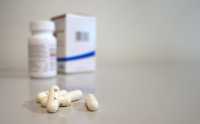Author Interviews, Diabetes, JCEM, Pharmacology / 28.01.2023
PPIs Linked to Increased Risk of Heart Disease and Death in Type 2 Diabetes
This article is for informational purposes only and is not a substitute for professional medical advice, diagnosis or treatment. Contact a qualified medical professional before engaging in any physical activity, or making any changes to your diet, medication or lifestyle,
MedicalResearch.com Interview with:
Tingting Geng PhD
Department of Nutrition and Food Hygiene
Hubei Key Laboratory of Food Nutrition and Safety
Ministry of Education Key Lab of Environment and Health
State Key Laboratory of Environment Health (Incubating)
School of Public Health, Tongji Medical College
Huazhong University of Science and Technology
Wuhan, China
MedicalResearch.com: What is the background for this study?
Response: Previous studies have suggested that proton pump inhibitors (PPIs) may lead to an increase in cardiovascular events due to the drug-drug interactions between PPIs and clopidogrel and gut microbiota dysbiosis. Patients with Type 2 Diabetes (T2D) are at more than three times higher prevalence of using PPIs, and two- to fourfold higher risk of developing cardiovascular complications and premature death than general populations. However, evidence regarding the influence of PPI use on subsequent risks of cardiovascular disease and mortality among patients with T2D is scarce.
We conducted a prospective study using the UK Biobank study to examine the association of PPI use with risks of coronary artery disease, myocardial infarction, heart failure, stroke and mortality among patients with T2D. Using multivariable-adjusted Cox regression models and a propensity score-matched cohort, researchers found robust results that PPIs use was associated with a higher risk of coronary artery disease (adjusted HR=1.27), myocardial infarction (adjusted HR=1.34), heart failure (adjusted HR=1.35), and mortality (adjusted HR=1.30).
(more…)








